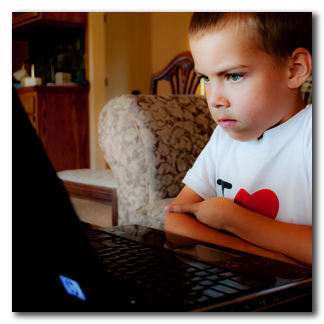Articles
Why do children read or watch TV while eating
Does your baby refuse to open her mouth to that meal you so lovingly cooked? Do your kids spend hours trying to finish their food or refuse to eat the ‘healthy greens’? Have you ever wished you could just shove the food in their mouth and get over with the ordeal? Since that’s not an easy task, What’s the next best thing you resorted to? Got them to watch TV or play on the Tab or phone, so as they get distracted you could quickly get over with the task that could have lasted several hours? The result- they eat quick and they eat whatever you cook! The new age mantra- An ‘Apple’ thrice a day can keep eating woes away! Blessing in disguise for parents or a bane for the future that we will be fighting against all our life?
These days parents are constantly complaining how technology is making them lose connect with children. Dinner table conversations are no longer a ritual, uninterrupted meal is a rarity. How did it all begin? Are the kids really to be blamed? Who introduced it to them?
Parents start feeding their kids in front of Ipad or television when they are little. As kids begin to enjoy watching the moving frames, pictures, sounds etc. they start ignoring the food and get glued to the pictures. Most of them do not even know whether they are eating food or the taste of the food and loose interest in it. Infact they associate eating with seeing. So what seems like a harmless gesture by parents or house help gradually builds into a compulsive habit for the children.
Children are keen observers, especially when it comes to their family members, whom they spend maximum time with. When child is eating parents are looking at their mobile phone screens, replying to messages, reading emails, checking social media etc. so the child starts believing that the dining table is not only for eating food and she begins associating reading to eating because parents are doing the same.
When child is eating and looking at the screen at the same time there are very interesting and intense scenes and the child goes through a lot of emotional excitement which interferes in his grinding, secretion of saliva in the mouth, which is the beginning of digestion of food. Not only that, whenever there is a very intense scene the speed of eating increases and hardly is the child grinding, instead is gulping the food. Sooner or later they start thinking it is a waste of time eating slowly, so they gulp the food and gulp the water.
The solution lies more with parents. First parents have to change themselves while informing the children they have gone wrong here and they want to undo to help not only the child but themselves.
While taking workshops on ‘mindfulness for kids’ we ask children to eat mindfully and slowly. Some children exhibit restlessness and difficulty as they have to slow down, hence a few give up eating midway, some however attempt eating very slowly chewing each bite nicely. At the end these children share that earlier when they ate they needed water in between meals, but this time eating mindfully they didn’t feel the need because of the slow eating the food became like liquid, they now understood the meaning of ‘drink your food’.
Parents should introduce family time as part of dining etiquettes, where no member in the family will check the mobile or watch television or read books/ papers. This will not only make eating a conscious ritual but also open up communication between family members.
We should try adopting a persuasive approach towards toddlers throwing tantrums while eating. Instead of showing a screen, narrate a story weaving the meal into it, hence creating excitement in eating.
At least once a week adopt a mindful eating day. Notice the difference in eating mindfully and mindlessly.
A bit of hard work will do a lot of good in calming the minds of our future generation.
by: Saroj Modi, Founder, The Inner Startup
Comments are closed


